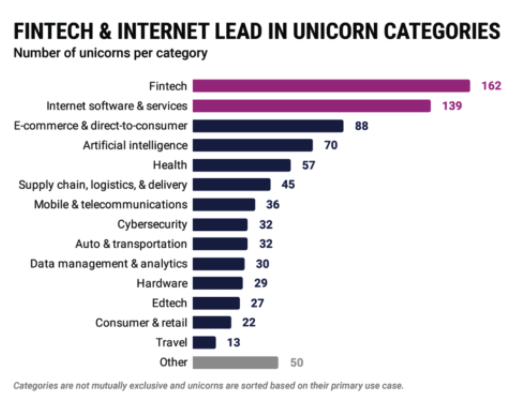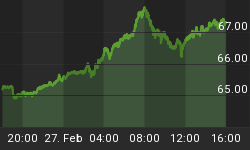Private startups with $1-billion valuations were coined “unicorns” in 2013, and they’ve shocked and awed the markets. But it’s not about unicorns anymore. The new legendary startups are “decacorns” and even “hectacorns”.
“Decacorn” are private startups that have hit valuations of $10 billion over a short time frame, while “hectocorn” are valued at an unbelievable $100 billion.
According to data from CB Insights, as of October 1, 2021, there are more than 865 unicorns and 32 decacorns worldwide valued at a combined $2.84 trillion, and the U.S. is the largest contributor to the unicorn list, with 230 unicorns and 14 decacorns, followed by China with 225 unicorns and 9 decacorns.
By 2022, CBInsights expects there to be 1,000 unicorns.
China’s ByteDance, the parent company of TikTok, is the biggest of them all, with a valuation of $140 billion, followed by the payment company Stripe, valued at $95 billion. Elon Musk’s rocket company SpaceX is valued at $74 billion, while ride-sharing business Didi Chuxing has a $62-billion and delivery service Instacart comes in at $39 billion.
 Since 2020, startup unicorns have been transforming themselves into decacorns at a fast clip, while earning the first billion is the biggest challenge. After that, the money starts flowing a lot smoother. Companies that implemented technology and apps ostensibly to improve the everyday lives of people were boosted by the pandemic and lockdowns and shot into decacorn territory fastest.
Since 2020, startup unicorns have been transforming themselves into decacorns at a fast clip, while earning the first billion is the biggest challenge. After that, the money starts flowing a lot smoother. Companies that implemented technology and apps ostensibly to improve the everyday lives of people were boosted by the pandemic and lockdowns and shot into decacorn territory fastest.
On average, it takes about six years for a startup to turn into a unicorn. But after that, it’s been taking only two and a half years, on average, to transform from a unicorn into a decacorn.
Out of those who attained unicorn status this year, the largest number comes specifically from the Software as a Service (SaaS) space, followed by fintech at 128 deals. A third of these billion-dollar companies operate in the fintech space and have a cumulative valuation of $516 billion. Currently, some 40 private start-ups gained decacorn status globally and most of them are FinTech startups.
After SaaS and fintech, the largest number of startups are from e-commerce and direct-to-consumer businesses, followed by artificial intelligence.
Worldwide, more than 3,600 investors have been backing the unicorns, and most of them put all the money on a single horse.
Yet, according to CB Insights, more than 350 institutions have investments in five or more unicorns. The largest investor is American-based Tiger Global Management, with stakes in more than 120 unicorn companies. In the first quarter of this year, Tiger Global was making around four deals a week.
Japan’s SoftBank Group is second, with investments in 69 unicorns, followed by China’s Tencent Holdings, the investment arm of the China-based internet giant, with 58.
While the U.S. and China have typically ruled the unicorn world, a new threat to that status quo is emerging--in India. Just follow Tiger Global Management, which appears to be shifting its attention to India in its hunt for the next potential hectocorn.
For Q3 2021, India added 10 new unicorns, compared to 7 for China and Hong Kong, though not even close to the U.S. addition of double digit unicorns. Indian startups also managed to raise $10.9 billion in 347 deals--the first time they have hit that total amount of money raised in a quarter, according to media citing PwC data.
















